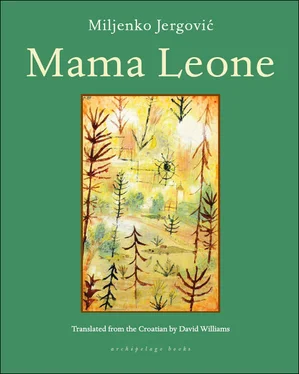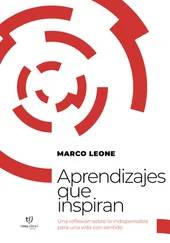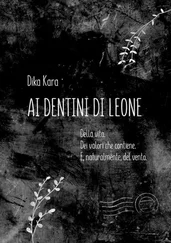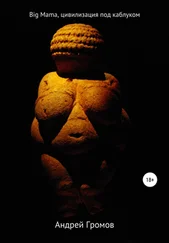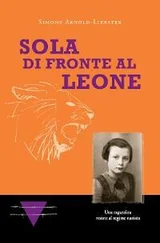Auntie Doležal was uncomfortable the moment we were on our own. I was sitting on the couch, and every little thing, every chair and cupboard grew before my eyes, all so immense, dead, and dusty. It was as if we were in a museum where no one had lived for thousands of hundreds of years and that Auntie Doležal was the guardian of a secret bounty and framed yellowed photographs of serious-looking people in funny uniforms. In one picture there was a man with long twirly whiskers and something funny on his head, something like an iron hat with a spike on the top. Who’s that?. . That’s my dad , Auntie Doležal brightened up, because I wasn’t scared of all her dusty stuff anymore. He was a soldier and fought for Czar Franz. . And he wore that thing on his head when he fought?. . He did, I think he did, it was actually part of the uniform. . Did Czar Franz’s other soldiers wear that thing on their heads too?. . I don’t know, probably. . They really wore those same iron hats on their heads? I really was surprised because I couldn’t imagine someone running around with that sort of thing on their head. Well, I’m not at all surprised they lost all those wars .
Auntie Doležal smiled thinking me pretty witty and smart for my age, and me, I was just uncomfortable because she was uncomfortable, so I searched the place for something similar for us to talk about, just not something belonging to her dead husband. They’d killed him in Jasenovac and you weren’t allowed to talk about him with Auntie Doležal. Actually, it was allowed, just no one wanted to, just like Auntie Doležal didn’t want to talk to Grandma about the little brown spot on the tip of her nose. The polite thing to do was to shut your mouth and hope Auntie wasn’t thinking about her Jucika, even though almost everything in her apartment reminded you of Jucika, and all his stuff was exactly where it was when they came for him.
I had the impression everything was Jucika’s so we weren’t allowed to talk about anything. Auntie Doležal held her hands in her lap and waited, I had to say something but didn’t know what. Auntie, how about telling me a story? I remembered that grown-ups expect these sorts of requests from children and made a face like I wanted to hear a story more than anything else in the world and I’d be heartbroken if she didn’t tell me one.
Auntie Doležal fidgeted a bit, but the discomfort was gone. She just needed to remember a story and then everything would be all right and it wouldn’t matter that there weren’t any toys or picture books in her apartment and that sitting here like this was as strange and new to her as it was to me. I don’t know many stories, I’ve forgotten them, but here’s one about a girl called Forgetful . Auntie Doležal folded her arms on her chest and felt herself very important, the kind of importance grownups feel when they tell stories, which is why children beg them to tell stories in the first place. It’d been a long time since Auntie Doležal had told anyone a story so she felt even more important. Forgetful forgot everything. When her mom sent her to the store, she couldn’t remember what she was supposed to buy, when she went to school, she forgot her books, when she went to visit her grandma in the village, she forgot to bring her knitting wool. Forgetful forgot everything you could possibly forget, but she never forgot her forgetting and this made her very unhappy. She knew that others always remembered or would go back for what they had forgotten, but she was lost and all on her own because absolutely no one forgot so badly that they couldn’t remember what they’d forgotten. So Forgetful decided to write down everything she might forget. She wrote down what she was supposed to buy at the store, that she had to bring her books to school, and that she needed to take her knitting wool to her grandma’s. But the more Forgetful wrote down, the more things she had to forget. For every single thing she wrote down and remembered there were another ten she had to write down, and another hundred for those ten. The world was so big and forgettable that in the end Forgetful came to the conclusion that there was nothing else in the whole world except the things she forgot. This made her even unhappier and she spent all day waiting for good fairies, but they never came, so she waited for angels, but they never came either. Actually there was no one else around but her mom and dad who’d look in on her every now and then and say, Oh, Forgetful, Forgetful, you’ve forgotten everything again .
Auntie Doležal clapped her hands. I was surprised: In the end nothing happened in her story. There was nothing about what happened to Forgetful, whether she was alive today or whether she grew up and stopped her forgetting. There was no end to the story because it just got bigger and bigger like the circles around a stone thrown into the sea; there’s always another circle around the other circle, and inside one thing forgotten there was always another and no one can count all these forgotten things because forgotten things can’t be counted. It’s like they don’t exist and they never existed, but if you’re Forgetful and everyone knows that you of all people are the forgetful one, then you start to count and write all the forgotten stuff down.
I looked at the wall, Auntie Doležal asked did you like the story? but I couldn’t answer because I was trying to remember something that I knew yesterday but had forgotten today. I didn’t know what it was, but I’m sure there was something and that I had forgotten it. Did you like the story? Auntie Doležal repeated. Wait a second, Auntie , and again I tried to remember. Okay, I’m waiting , she said.
You forget things because they’re all different. If they were the same, you wouldn’t be able to forget them. If her mom had sent Forgetful to the store to buy the same things every day, if Forgetful had to take the same books to school every day and take the same wool to her grandma’s, then she wouldn’t have forgotten anything. I’ll build a castle for Forgetful!. . So, you liked it then?. . No, I didn’t like it, but I’ll build a castle where she’ll live by herself and it’s all going to be the same and she won’t be able to forget anything in it and no one will remind her of her forgetting .
There was a ding-dang-dong. Grandma was back from the podiatrist. Uff, my Micika, that’s a relief. You have no idea how much of a relief that is , she said, and Auntie Doležal made another coffee, I wolfed down the last biscuit, and then we went home. I don’t remember how Grandma and Auntie Doležal parted, I don’t remember if it was sunny when we left and I don’t remember if Auntie Doležal watched us from her window and if we waved to her from the tram stop. I’m sorry I don’t remember because we never saw her again.
The ambulance came for Auntie Doležal on a Monday. That morning the neighbors had found her on the ground floor, a bag of groceries in her hand — bread, milk, biscuits, and lettuce — just standing there. They said hi, and every time she’d startle but not say hi back. Then she climbed the stairwell, going from door to door and then back down to the ground floor. It was afternoon by the time she rang the Kneževićs’ bell and said to Snježana, the girl who was my father’s intern at the hospital, I’ve lost my way! Snježana was confused and asked where did you lose your way, Auntie? Auntie just smiled and said I don’t know , and then Snježana called the ambulance.
First the doctors thought Auntie Doležal had had a stroke and that’s why she had forgotten everything, and then they figured out she was perfectly healthy and that there was nothing wrong with her. So they thought Auntie Doležal had suddenly gone senile, but you can’t go senile overnight; yesterday you remember everything and today you can’t even remember where you live. Then they made some inquiries about whether Auntie had any relatives and discovered that Jucika was dead and that Auntie’s daughter, Vera, was also dead and that Auntie’s brothers and sisters were also dead, and in the end it turned out that we were all Auntie Doležal had left.
Читать дальше
